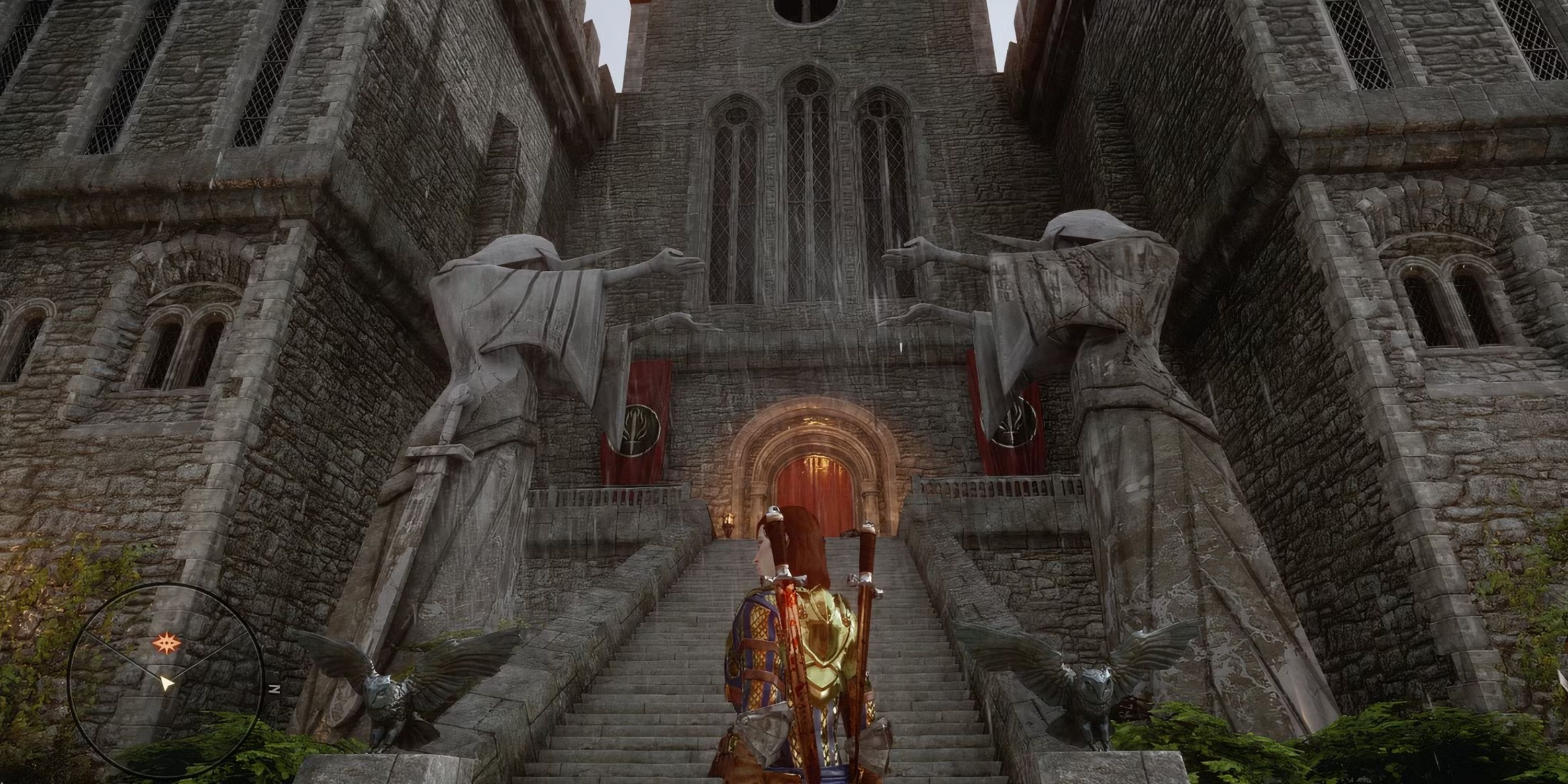Open-World Games Where The Ending Changes Based On How You Played
Description

Summary
- Open-world games offer player-driven narratives that shape unique endings based on choices, interactions, and exploration.
- Endings in games like Cyberpunk 2077 and Red Dead Redemption 2 reflect personal decisions made throughout the story.
- Titles like Kingdom Come: Deliverance and The Witcher 3 emphasize how player choices impact the game world and character development.
Sometimes, reaching the end credits is less about what happens and more about what you did to get there. These open-world games don’t just let players roam freely; they let them shape their own fate, often in subtle ways that snowball into massive consequences. Reputation systems, loyalty missions, moral dilemmas, even offhand side quests. All of it matters.
And what makes these titles so compelling isn’t just how many endings they have, but how personal those endings feel. When the world remembers how you treated it, that’s when things start to hit differently.
6
Kingdom Come: Deliverance
No Dragons, No Magic, Just Consequences
Set in the gritty realism of 15th-century Bohemia, Kingdom Come: Deliverance skips fantasy tropes and dives headfirst into political intrigue, social hierarchy, and the slow grind of survival. Henry isn’t a chosen one. He’s a blacksmith’s son. And whether he rises, stumbles, or fades depends entirely on how players engage with the world. Dialogue, reputation, and even how clean he keeps his clothes, all factor into how others treat him.
The game’s final hours can feel dramatically different depending on whether players choose diplomacy, brute force, or stealth. And since most story beats unfold through dialogue and player-driven exploration, the weight of every conversation builds toward a final act that reflects the alliances and rivalries that have formed. It’s not always explosive, but it feels earned, and sometimes, that’s even better.
5
Dragon’s Dogma: Dark Arisen
Love Is Not A Choice, It’s A Consequence
There’s something beautifully unhinged about how Dragon’s Dogma: Dark Arisen handles its ending. It doesn’t just look at which dialogue option players picked or whether they saved the village. It quietly tracks which NPC they interacted with most, gifted items to, or even just stood near for too long. Then, when the final confrontation arrives, it chooses their “beloved” for them. Sometimes it’s the person players expected. Other times, it’s the innkeeper with a great haircut they unknowingly spammed for fast travel. It’s part romantic, part hilarious, and entirely unforgettable.
The ending isn’t just about who players love, though. It’s about what kind of Arisen they chose to be. The game world is full of quietly branching paths, from whether they let certain monsters live, to how deeply they engaged with the cult hiding in plain sight in Gran Soren. The final act throws players into an existential meat grinder that completely recontextualizes their journey, with twists that feel like they were designed to be discovered on the second or third playthrough. And then there’s Bitterblack Isle. A post-game dungeon that turns into something far more sinister if players carry the right burdens with them. Every choice leaves a mark, even when players don’t realize they’re making one.
4
Cyberpunk 2077
When Cyberpunk Isn’t Just A Vibe, It’s A Moral Fork In The Road
For a game that leans so hard into neon lights and chrome arms, Cyberpunk 2077 has an unexpectedly emotional center. The bond between V and Johnny Silverhand is chaotic at best, but it ends up becoming the heart of the story. And depending on how players handle that relationship, along with a slew of side choices and loyalty missions, the final chapter can swing in wildly different directions.
But it’s not just about which button players press at the end. Night City itself holds the key. Help a character with their personal arc, and that might unlock a whole new possibility down the line. Or ignore them, and watch that option disappear forever. Some endings feel triumphant. Others feel like a resignation. And a few leave V’s fate ambiguous in a way that makes silence feel louder than any shootout ever could.
3
Red Dead Redemption 2
The Saddest Stories Are The Ones You Help Write
Most people know how Arthur Morgan’s story ends, but what they don’t always realize is how deeply that ending reflects the way he lived. The rockstar didn’t just create an open world. They created an emotional scale that tips according to the player’s honor. Help a stranger fix his wagon and ride away without a word, and the game remembers that. Choose to rob a nun instead, and the world changes its tone completely.
The open plains of Red Dead Redemption 2 aren’t just gorgeous backdrops for train robberies. They’re mirrors. And the ending, which adjusts based on choices both big and painfully small, hits like a punch to the chest because it doesn’t come out of nowhere. It’s the logical endpoint of who Arthur became in a world that gave him every chance to change, or not.
2
Fallout: New Vegas
“War Never Changes”… But The Way You Fight It Absolutely Does
No one really gets a clean slate in Fallout: New Vegas. Everyone’s got history, agendas, and debts they pretend they’ve paid off. And that includes the player. From the moment the Courier wakes up in Doc Mitchell’s house, every decision becomes part of a growing political avalanche. Side with NCR and you’re throwing in with bloated bureaucracy. Go with Caesar’s Legion and you’re signing up for brutality under the guise of order. Or maybe walk the lonely path of Yes Man and claim the Mojave for yourself.
What makes New Vegas so brilliant isn’t just that it offers branching endings. It’s that the entire structure of the game is built around ideological tension. Every faction wants you to believe they’re the right choice. Every action, whether it’s securing Hoover Dam or simply choosing who runs a little backwater town like Goodsprings, shifts the balance of power. By the time players reach the final act, they’re not just closing a story. They’re signing off on a version of the future that they handcrafted.
1
The Witcher 3: Wild Hunt
Choices Don’t Just Matter, They Linger
There’s a kind of quiet cruelty in how The Witcher 3 handles its branching storylines. Players can spend hours chasing monsters, negotiating with spirits, or drinking with friends, and think they’re on the right track, only to find out much later that they weren’t. The world never yells at you for choosing wrong. It just remembers. And when the time comes, it reacts.
What makes it sting is that most of the major changes in The Witcher 3 come down to the little things. A gesture. A conversation left unresolved. A promise not kept. Whether it’s about Ciri’s fate or the political landscape of the Northern Kingdoms, everything shifts depending on how Geralt treats the people in his orbit. Players aren’t just shaping a world. They’re building their own version of Geralt, a man molded by the choices they made for him.




